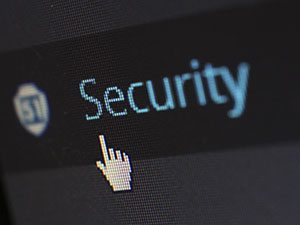 They say an ounce of prevention is worth a pound of cure, and when it comes to protecting your computers from malware, spyware, and other forms of infections, this couldn’t be truer. Managed IT services companies, like Natural Networks, have worked with hundreds of small businesses to ensure their computers, servers, and network are secure and protected from such threats.
They say an ounce of prevention is worth a pound of cure, and when it comes to protecting your computers from malware, spyware, and other forms of infections, this couldn’t be truer. Managed IT services companies, like Natural Networks, have worked with hundreds of small businesses to ensure their computers, servers, and network are secure and protected from such threats.
Prevention is key when dealing with threats like malware, and by following a few key rules, you and your employees can stop malware before it becomes a problem:
1. Use an Antivirus Program and Keep It Updated.
Using a highly reputable anti-virus program on your computers can help prevent infections before they can find their way onto your office’s computers. Most of all, ensure that your anti-virus software is kept up-to-date. Many antivirus software programs should have the capability to automatically update new virus definitions on their own in order to track and prevent new infections as they are developed.
2. Keep Operating Systems Updated
While we’re on the subject of updating your antivirus software, it’s important that you keep your computers’ operating systems updated as well. Your computers should automatically alert you when an update is available. Microsoft often deploys new updates to its operating system, Windows, to fix bugs and close security holes they may find. It also helps to keep your device up-to-date with the latest features and performance enhancements as well.
3. Educate Your Employees on Spam and Email Scams, Like Phishing
Most viruses, malware, and ransomware end up on our computers because we, as the end users, unintentionally allow them to infect our systems. Many of these threats reach us in the form of infected emails or phishing scams. A phishing scam is when a hacker or online scammer sends you, or a team member, an email disguised to be something other than what it’s claiming to be.
For example, a scammer may send an email that appears to be from Microsoft warning you that your system is infected and requesting you to click a link in the message body. When this link is clicked, it could take the victim to a website which infects their computer. Worse yet, the website may look legit and ask for information, like passwords, credit card info, and other personal information, which could be compromised if given out.
It’s important to educate your employees to look before they click on anything – like an emailed link – to ensure they know where it goes to. You can hover your mouse over any link without clicking it, and your browser or email client, such as Outlook, will tell you where the send originated from. You can also check the headers of an email that’s sent to you, such as the from address field, which will reveal the full email address of the actual sender.
4. Backing Up Your Files
Having an active backup is an important tool in preventing data loss in case your computer is infected with ransomware. Ransomware is a particularly nasty infection that encrypts all your files and holds them for a ransom typically paid in cryptocurrency such as Bitcoin. The advantage here is that if your computer is infected in this way, you don’t need to worry about paying any ransom, you can easily wipe your computer clean, and restore from your most recent backup.
5. Keeping Your Network Secure
Ensuring your network is secure can help prevent infections from finding their way onto your devices as well as keeping hackers and scammers from accessing your private data. Using a strong wireless password and setting up proper wireless encryption can help to stop would-be scammers from accessing the network. When setting up your wireless network, you should make sure you are using WPA2 encryption, as other forms, like WEP, are outdated and easily bypassed. Setting up a guest network so that visitors can still get on the internet without accessing the company’s internal network is also a great way to satisfy guests while keeping your data secure.
Using these methods of prevention can help keep you and your staff safe from malware and other infections. Managed IT services companies, like Natural Networks, can help with all of the key rules to prevent malware infections in addition to installing antivirus software, keeping your computers up-to-date, and even securing your network. If you’re interested in learning more about how managed IT services can help keep your office secure, give us a call today.



